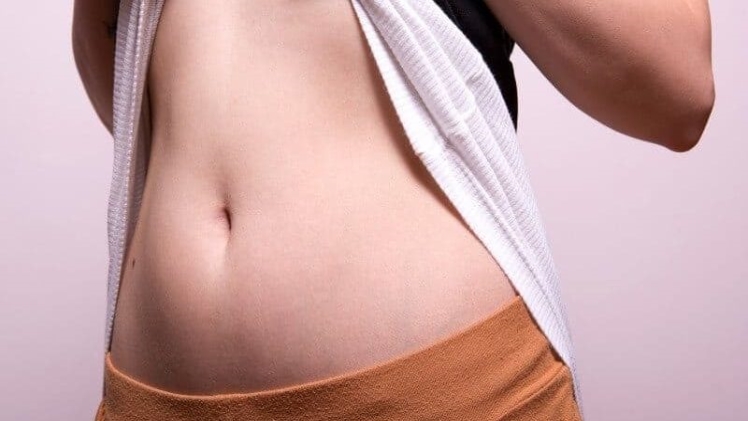Many of us might have come across or even heard about edema. This is water weight and causes unwanted stomach bloating and feeling uncomfortable or puffiness in your body. Generally, this is when water tends to build up in someone’s body, especially in the legs, abdomen, and arms.
Amazingly water levels might make individuals’ weight fluctuates by even two and four pounds in one day. Further, severe water retention also can be a sign and symptom of kidney or heart disease. Without further ado, allow me to take you through a comprehensive guide on practical and simple ways to eliminate the water weight.
– Drink more water
Yes, drink more water to reduce water weight. Besides, dehydration makes our bodies hold extra water making up for the lack of incoming water. Therefore, drinking plenty of water tends to enhance function, allowing excess sodium and water to get flushed out of your system. In this, adults looking to eliminate water weight should drink about two liters of water every day.
– Consume magnesium oxide and vitamin B-6
These are effective supplements best for fluid retention. In essence, these supplements operate with someone’s kidneys to aid the body in flushing sodium and water from their system. Further, these supplements also are effective and helpful in reducing the signs and symptoms of the PMS or premenstrual syndrome water retention.
Additionally, they still lower abdominal bloating, breast tenderness, and swelling in the legs. However, it is advisable for someone to consult his licensed doctor before consuming any new supplements to avoid interactions and effects with other related medications.
– Reduce sodium intake
Replace the intake of sodium foods right with low-sodium equivalents. This is because much salt or sodium leads to immediate water retention. In this case, the body requires keeping its sodium ratio balanced to eventually function appropriately, meaning it will hold on to the water when excess sodium is taken. Natural foods like nuts, vegetables, and seeds got are low in sodium. Additionally, Atkins diet which can reduce sodium levels comprise avocados, bananas, and leafy vegetables.
https://www.fda.gov/ForConsumers/ConsumerUpdates/ucm181577.htm
– Lower your carb intake
Carbs or carbohydrates might force the body to store additional water. When someone consumes carbohydrates, the energy we don’t utilize immediately is stored as functional glycogen molecules. And one gram of glycogen contains three grams of water.
Therefore, when we cut down on carbohydrates, this would be the best way to utilize up glycogen stored, meaning water weight will also be lowered. The standard carbs to cut down on comprises pasta, bread, and rice. Then replace them with daily sources of carbs, which are high in the protein foods like eggs, meats, and soy products to avoid the buildup of the water weight.
– Use water pills
Water pills are claimed to treat fluid retention. Besides, these specific pills operate as diuretics, which can make an individual urinate frequently. In this case, urination allows the body to eliminate excess sodium and water.
Remember, the water capsules are not commended for extended-term use. Therefore, they should be consumed under the doctor’s instructions to avoid mineral deficits or dehydration.
– Exercise
We know that workouts allow our bodies to sweat out, reducing excess water. And this leads to water weight dropping immediately. Besides, exercise rapidly lowers the water weight by burning glycogen energy in the body. There are many and different exercises you can start practicing, such as yoga.
– The primary cause of water weight
Menstrual cycle- natural hormone changes tend to increase the water weight retention before menstruation. And in this case, cravings for carbohydrates and salty foods can cause additional water weight with time.
Medications- Besides, water weight can also be a side effect of different medications. And this includes anti-inflammatories and other related oral contraceptives. Therefore, consult your doctor before taking any medications to know the side effects.
Food choices- High carb and high sodium diets lead to water retention. Further, magnesium and potassium deficiencies tend to cause excess water weight.
Kidney or heart disease might disrupt the standard flow of blood in our patient’s bodies, thus causing more buildup of the fluids, which results in extra water weight and swelling.
Physical inactivity- standing or sitting for an extended time can also stop body fluids from normally circulating someone’s body appropriately. Therefore, this tends to cause the buildup right around the body tissue, which causes swelling in the extremities.
Conclusion
Water weight is becoming popular with many Americans due to the different reasons mentioned above. Generally, severe water retention tends to comprise a tight appearance of skin which might keep dimple when it is eventually pressed. And this is what we call edema. The good news is you can eliminate this disorder by trying the above methods.

